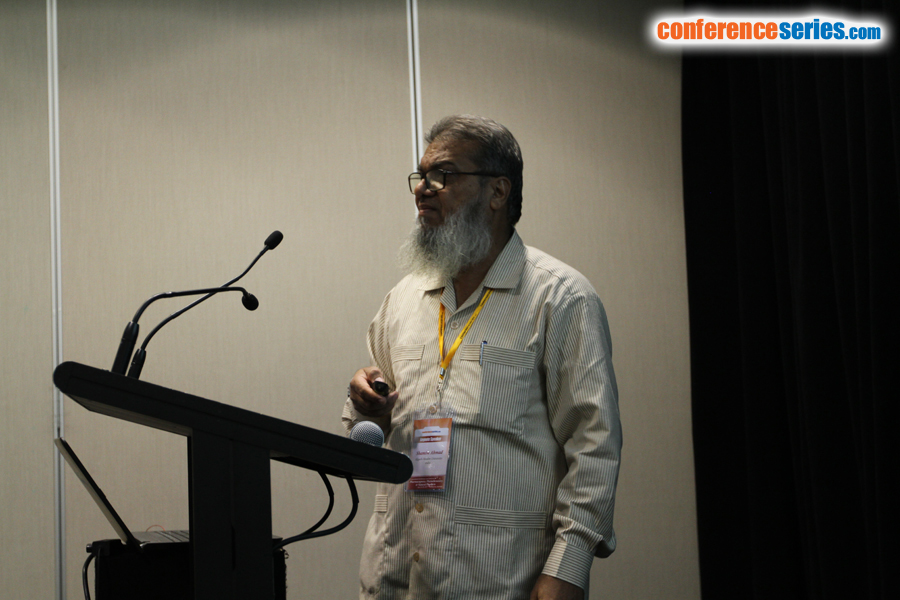
Shamim Ahmad
Aligarh Muslim University, India
Title: Prophylactic Efficacy of Topical Uses of Besifloxacin and Moxifloxacin On Conjunctival Bacterial Flora Before and After Intraocular Surgery
Biography
Biography: Shamim Ahmad
Abstract
Excessive and injudicious use of antibiotics has aggravated the problem of increased alarming antibiotic- resistance all over the world thus , proper selection of antibiotics for the prevention of any possible postoperative infection including Endophthalmitis after intra ocular surgery remains a challenge for clinicians including Ophthalmologists.The present study aims at studying before and after use of topical two new fourth generation floroquinolones viz. (Moxifloxacin 0.5% and Besifloxacin 0.6%) on conjunctival flora among as much as 100 North Indian population undergoing various intraocular surgeries as prophylactic agents. Patients with hypersensitivity to these antibiotics were excluded from this study. Out of all total 100 eyes of 100 patients under study, only 27 conjunctival swabs, showed positive bacterial growth preoperatively (16 in Moxifloxacin group and 11 in Besifloxacin group). After use of topical antibiotics for 10 days, no conjunctival swabs collected postoperatively exhibited positive bacterial growth in both the groups. Both the fluoroquinolones seemed to be highly effective in our in-vitro sensitivity tests conducted against the bacterial isolates obtained from the patients undergoing various intraocular surgeries as they inhibited the growth of all bacterial strains isolated from conjunctiva. Both the antibiotics were found to be 100% effective as prophylactic agents in patients undergoing intraocular surgeries. In spite of medical literature reports of emergence of resistance against widely used Moxifloxacin , no bacterial strain isolated in our study showed resistance to Moxifloxacin. Similarly, it remained effective in the Moxifloxacin receiving group as suggested by negative bacterial cultures taken 20 and 40 days postoperatively revealing the antibacterial efficacy of both topical drugs against conjunctival commensals in the study to be comparable (100%). The long term efficacy of the drugs in preventing early and late postoperative infection was also equal. Further, on comparing the activity against the bacterial isolates no significant difference was observed. Thus, these antibiotics can be safely used in ophthalmology as effective antibacterial prophylactic agents among the eye patients undergoing various intraocular surgeries.




